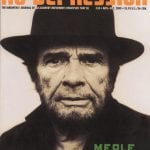Dan Penn – I Cut Myself Loose and I Try to Get Out of the Way
ND: You know as much as anyone what it takes to make a great song. So, what’s the secret?
DP: The older I get, the more I realize I know nothing about what I do. I used to think I had the ingredients, but it is hard to put a finger on what makes a great song. All the preconceived ideas I had about songwriting seem to have kind of melted away through the years. When I write, I cut myself loose and I try to get out of the way. I’m still writing, but all I do now is I just show up. I feel like if I show up and I apply myself, which means enjoy the music, that seems to do it for me.
What has always been important to me is how the lyric hit the melody; how they went together. I am not interested in what is being said, but how it is being said. I kind of take it back to Elvis. Sometimes I couldn’t hear a word he was saying, but I liked the way it made me feel. I like people to hear what I am saying, but if it just makes you feel good, that’s to me the main thing. It is not how great the lyric is, or how strong the melody is, but the marriage of them, and a good groove.
II. WHAT WE ABSORB EVENTUALLY ALL COMES BACK OUT
ND: How did you and Chips Moman come to write “Dark End Of The Street”?
DP: Southern songwriters seemed to always want to write the best cheating song ever, since Hank Williams’ “Your Cheatin’ Heart”. That song made a big impression on the minds of Southerners. It got ingrained in me, and I think Chips Moman was the same way. A lot of time with songwriting, it is what you absorb. You don’t personally have to go through it, but if you see it, understand it and absorb it, I think that really what we absorb eventually all comes back out.
We were in a poker game here in Nashville during a DJ convention. We had played a long, long time. I said let’s take a break, so me and him went into a motel, an adjoining room, and there was a guitar. I had this little idea, and I guess we wrote that song in 25 or 30 minutes. It was a week or two before we put it down, and it just so happened that James Carr was the cat who was up for a cut. Back then when we had so many great black singers who would sing our stuff, it seemed like the right one always popped up when the song got wrote.
ND: Was it the same kind of thing with “Do Right Woman”?
DP: Me and my wife were having dinner at Chips’ house, with him and his wife, and then he and I retired to a little office off the kitchen. He had this Super 400 Gibson, and we just began. We just wrote that song in maybe a couple of hours. We didn’t write it for anybody, just for us.
And then later on the Aretha Franklin session materialized at Fame, and Chips was called to be the guitar player. Right before we went down there, we put “Do Right Woman” down, just me and him on guitar, to play for Jerry [Atlantic Record exec Jerry Wexler], for Aretha. We had it about two-thirds done, but we didn’t have a bridge. I had to go write the bridge in the cloak closet while they were cutting the track [at Fame]. Wexler would say, ‘Have you got the bridge?’ He added a line, then Aretha stuck her head in and added a line. I said, ‘Cool! We got it.’ Then I had to go out and sing it in her key. I had to be the track singer while they were cutting it.
ND: I heard this was a strategy you guys would use. You are such a strong singer, you’d get sent out to sing the song for whoever’s session it was, just to rile them up.
DP: I was the wake-up guy. We only did it if we felt the singers were sleeping a bit, if they were a bit on the lazy side. Singers don’t care about what the next singer is going to do. That is an impersonal bunch, including myself. I don’t care what that guy is doing, but if he woke me up, I would show them what I can do. And usually that would get it. But they wouldn’t cop my licks.




